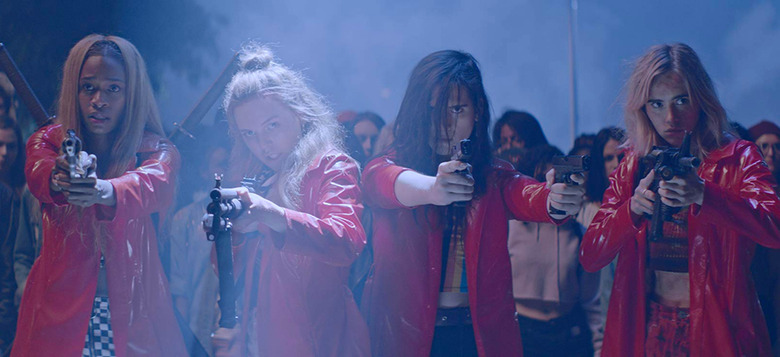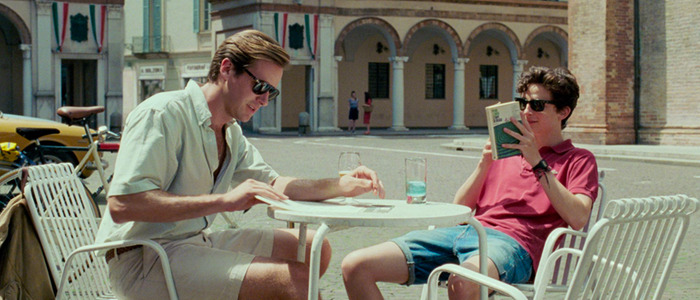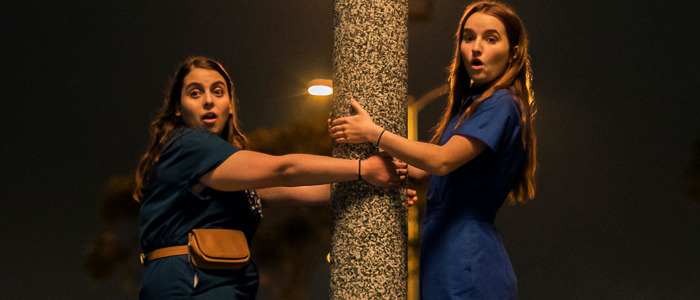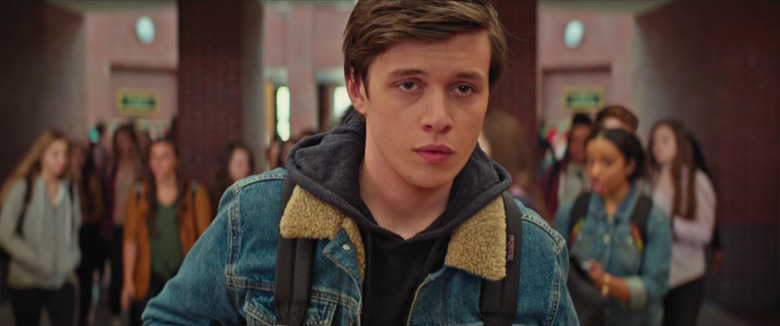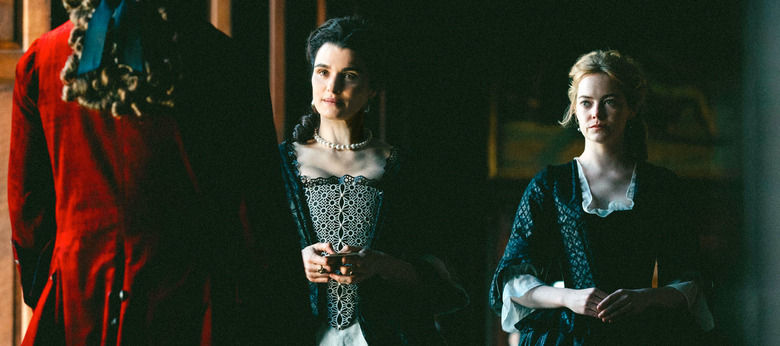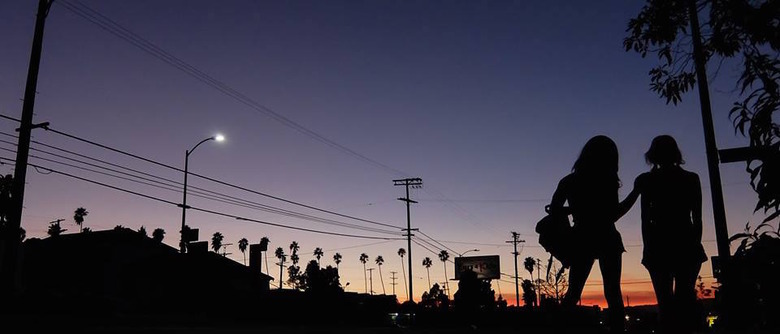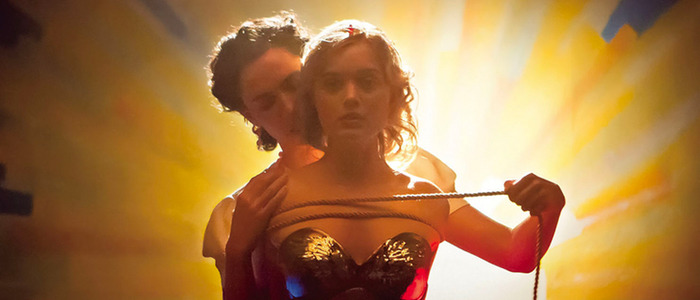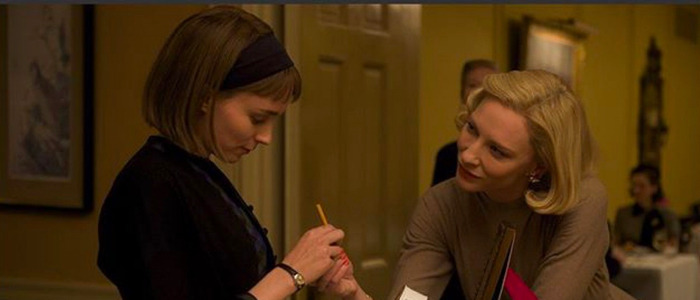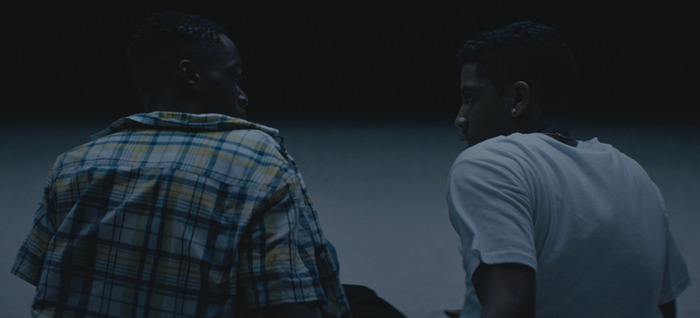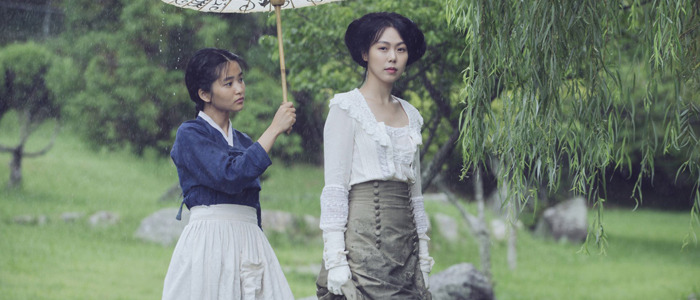The 10 Best LGBTQ+ Films Of The Decade
(This article is part of our Best of the Decade series.)Representation of gender and sexual minorities in mainstream cinema has really taken off in the past decade, at least relative to decades prior, where LGBTQ+ audiences were fortunate to have one notable example in a given year, let alone options for seeing their experiences portrayed and dramatized. We're still a long way from having parity with cisgender and straight representation, and it's notable that the increase in quality representation didn't really take off until the latter half of the decade, but change has definitely trended toward the positive.So I present for your consideration, dear reader, ten of the best LGBTQ+ films of the past decade. Some of these are obvious, some less so, and I'm sure that there will be plenty of disagreement over how these are ranked and what didn't make the cut. (Don't hate me for not having seen Portrait of a Lady on Fire yet!) And that's fine! As with any list that ranks works of art, I would encourage you to treat it as a thoughtful suggestion rather than an empirical declaration of the absolute best that the cinematic form has to offer. Not all of these may be for you. Some of your favorites may not be for me. But the point is to celebrate the space we now have to see ourselves reflected in the art we love.
10. Assassination Nation
Assassination Nation might seem like a strange choice to kick off this list, but this intense commentary on the destruction of our personal privacy in the digital age comes loaded with perspectives on all sorts of sexual shame. The inciting incident of the town of Salem's descent into anarchy is that the staunchly anti-gay mayor is exposed via a hack of hiring male escorts and wearing women's clothing, an acts that are so shameful to him that he devoted his public persona to rejecting them. As more citizens get hacked, we see that shame spiral out of control, and it's those who choose to live without shame who suffer the most. Namely, transgender teenager Bex (Hari Nef) is asked by her crush Diamond (Danny Ramirez) to not tell anyone that they hooked up, and once that secret gets out, Diamond's public humiliation leads his friends to attempt to hang her. The film has a lot more on its mind than gay and trans issues, but the points it does make about personal desire and public humiliation for those desires are some of the most poignant of the last decade, if among the most intensely confrontational.
9. Call Me By Your Name
Luca Guadagnino's Italian summer romance between a 17-year-old and his family's older houseguest is a gorgeous and hypnotic examination of first love and sexual discovery. Elio (Timothée Chalamet) is on the cusp of adulthood and doesn't really know what he wants yet out of life, while Oliver (Armie Hammer) is a newfound source of confidence and mild eccentricity. Though Elio might not completely understand his feelings yet, he knows that he wants something more than friendship from Oliver, pushing away his girlfriend in the process. And when those feelings finally boil over into full-on romance, the transient nature of Oliver's stay becomes painfully bittersweet. But as Elio's father (Michael Stuhlbarg) reveals in one of the most heartfelt monologues of recent memory, those kinds of experiences are important, as they allow us to grow into ourselves and discover just who we might be in the future. It's painful to love and lose, but that pain gives way to being a truer version of ourselves so that we may love again.
8. Booksmart
If you had told me a year ago that one of the best lesbian subplots of the decade would come packaged in a teen raunch comedy in the vein of Superbad, I would have called bullshit. But Olivia Wilde's Booksmart has a remarkably tender and empathetic take on teenage lust, particularly as pertains to co-lead Amy (Kaitlyn Dever). It's remarkable enough that the film centers on a same-sex friendship that isn't inherently sexualized because one of them is gay – the film explicitly subverts that expectation through Amy's clueless parents – but the focus on Amy's affections for another girl speaks to the heartbreak of discovering that someone you're attracted to could never feel the same for you. Ryan (Victoria Ruesga) is a cap-wearing skateboarder with an androgynous name, and though she doesn't mean to project the perception of queerness into the world, she does, and Amy is attracted to her for it. When she realizes that Ryan only has eyes for a guy, Amy's heartbreak hits like a ton of breaks, just as many have experienced same sex crushes that were doomed before they began. But Amy's impromptu sexual encounter with Hope (Diana Silvers) gives the young woman hope for a romantic future, albeit through one of the most hilariously awkward losses of virginity put to film.
7. Love, Simon
Love, Simon is a film that is revolutionary for how un-revolutionary it feels. It's a teen comedy adaptation of a young adult novel, and the central hook is a coming out story for a gay teenager. The thought of such a film getting a major theatrical release would have been unthinkable a year ago, so the very virtue of Love, Simon's existence is noteworthy, but what elevates it is a very introspective understanding of what it means to be in the closet. Simon (Nick Robinson) only knows one other, very effeminate, gay student, and they aren't really friends, so he doesn't really have a template for being an out, proud, and gay version of himself. His fear of coming out isn't that those he holds dear will leave him for it, but that people will treat him differently for the knowledge that he is gay. He upholds a lie of straightness because he thinks the truth has the potential to change his life in ways outside of his control. This is a remarkably nuanced view of queer stereotyping and how the pressure to live up to those stereotypes can lead us to hold in the best and truest parts of ourselves, particularly when being gay is only one part of who we are.
6. The Favourite
Yorgos Lanthimos' The Favourite is a hilariously vulgar game of lesbian cat and mouse, as two women, Abigail and Sarah (Emma Stone and Rachel Weisz), vie for the affections of Queen Anne (Olivia Colman). It's a tale of manipulation, gaslighting, affection, and love, which manifests in a number of unexpected, duplicitous, and sinister ways. The 18th-century setting is interesting enough on its face for a lesbian romance, considering how casually the leads play games of sexual jealousy with one another, but an oft-overlooked aspect of The Favourite's queerness is that it is lesbianism as defined by privilege and secrecy. Lady Sarah's affairs with the queen are an indiscretion that allows her to manipulate Anne from the shadows, while Abigail's appeals to Anne are blatant manipulations of the queen's loneliness. It's not a film about healthy relationships, but it is a film about relationships that can blossom from imbalances of power and the necessity of secrecy, and the film's dark sense of humor about the affairs only make it all the more hilariously tragic.
5. Tangerine
Sean Baker's Tangerine is that rare film that treats transgender women of color and sex workers with the dignity and respect that they deserve. Sin-Dee Rella (Kitana Kiki Rodriguez) and Alexandra (Mya Taylor) are just trying to get by in this world, whether it's through the ingenuine affections of a pimp or the promise of performing musically to a mostly empty bar, and the iPhone cinematography gives us an unpolished look at the joys and heartbreaks of being a poor sex worker on Christmas Eve. It's a testament to transgender existence, a portal into a world that most people would rather pretend doesn't exist or would shame for simply existing in the first place. Couple that with an emotionally complicated subplot about an Armenian cab driver (Karren Karagulian) who can't come to terms with his attraction to transgender women, and you have one of the most emotionally devastating Christmas films ever made, though thankfully you have some hope for women supporting one another as the credits roll.
4. Professor Marston and the Wonder Women
Professor Marston and the Wonder Women feels like a film that should not exist yet. The glossy socially-conscious biopic is generally reserved for issues for which social progress has already been made, for the audience to congratulate itself about how far we've come as a society since the events portrayed. But the biopic about the creator (Luke Evans) of Wonder Woman and the two women he loved, his wife (Rebecca Hall) and their mutual girlfriend (Bella Heathcote), is so unconventional precisely because it treats concepts like polyamory and consensual BDSM as progressively accepted by a modern audience, much more so than most people even deign to think about. It would be incredible for any film on this list to even openly acknowledge bisexuality, but Professor Marston makes me feel seen as a polyamorous person in ways no other film has accomplished, and that kind of acceptance feels decades away from where modern LGBTQ+ discourse remains gridlocked against social conservatism. It's a film I think most audiences weren't ready yet, but as awareness of non-monogamous relationships grows and becomes more accepted through activism and education, I think Professor Marston will be looked back upon as a hidden gem.
3. Carol
Todd Haynes' Carol is a classically pure romance that gets right to the heart of experiencing same-sex attraction in a time and place where you can't be open about it. The furtive, flirtatious glances between Carol (Cate Blanchett) and Therese (Rooney Mara) speak volumes more than words ever could, demonstrating the kinds of nonverbal cues that gay people have had to use to express interest in one another because of the consequences that words would carry. And Carol dives headfirst into those consequences, as Carol's impotently domineering husband (Kyle Chandler) tries to take away custody of their daughter and Therese's boyfriend (Jake Lacy) becomes threatened by the growing influence of Carol's feminine companionship. Carol poses the ultimate question of whether love can survive social influences that push same-sex partners apart, and though it doesn't come to an easy answer, it does present hope to Carol's and Therese's future.
2. Moonlight
Moonlight is that rare kind of film that cuts right to the core of queer experience, dissecting the life of a black boy's ascension into adulthood as the forces of toxic masculinity threaten to suppress his same-sex attraction. Writer-director Barry Jenkins focuses on close-ups and quiet moments of contemplation to exemplify the abuse Chiron suffers at the hands of his drug-addicted mother and his homophobic classmates, and he shows how those influences caused a life of repression and self-erasure. It's the empathetic reunion with an old crush that allows adult Chiron to reconnect to that lost part of himself, and for the waves to wash away layers of emotional blockade the keep him from embracing his attraction to men. It's a powerful, tragic, hopeful story that deserves every bit of praise it has received.
1. The Handmaiden
I struggled with whether Moonlight or The Handmaiden deserved this top spot, but the fact of the matter is that The Handmaiden is such an intricate, tense, twisting, and ultimately uplifting experience that I can't help but consider it my favorite LGBTQ+ film of the decade. If you haven't seen Park Chan-wook's adaptation of Fingersmith, I won't get into the details because it's quite the twisty ride, but it's a story of early 20th-century lesbian seduction in Japan-occupied Korea that questions who is seducing whom, examines the male gaze of those who would use women to their own ends, and challenges your assumptions about the boundaries of class and ethnicity in forging lasting connections. Gorgeously shot, tenderly sensual, and sometimes just flat out bonkers in the tradition of the best con game narratives, The Handmaiden would be an achievement in filmmaking even if it didn't feature lesbian sexuality as a central hook, but that sex offers a glimpse into genuine emotional depths while completely sidestepping voyeurism, and the resulting film is as raw as it is mindbending.

